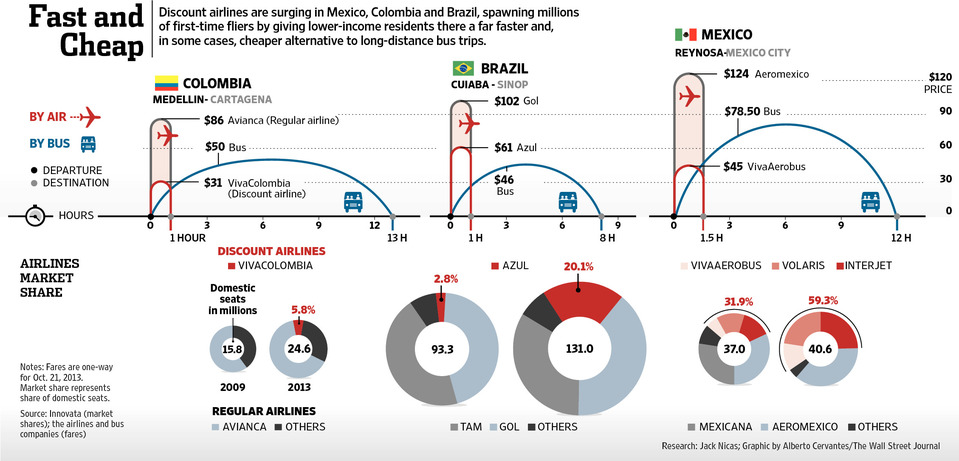Every now and then, it is helpful tto ask, and answer, the question of “what business am I in?” You might say a low-cost airline is in the transportation business, which is true enough. But so are operators of bus, train, commuter rail, ferry or subway systems.
The more detailed and helpful follow-on questions start when a manager asks “who are my competitors?”
The reason is that the answers to that question can lead to new business models or sometimes even industries. In Latin America, for example, discount airlines are competing with long-distance bus service, not other airlines.
It isn’t so clear how that will play out in the communications business, but we might already argue that Skype does not so much compete with traditional carrier voice as it does with Internet messaging or email.
Google Hangouts in a similar sense does not so much compete principally with carrier voice or traditional videoconferencing as chat services. WhatsApp might not so much compete with carrier text messaging as with Facebook and other popular social networks.
The point is that new opportunities sometimes do arise by redefining the business a firm believes it is in, who its customers are, and what those customers require and want.
Most service providers think of “prospects and customers” as people who live in certain geographic areas where the provider has a license, franchise or certificate to provide services.
Other providers, especially those using cloud-based approaches, do not define prospects or customers in geographic terms, typically. Even a local telco who sells hosted IP business telephony could, in principle, create a cloud-based service sold to users outside a licensed service area for common carrier services.
The point is that as low-cost airlines in Latin America target long-distance bus travelers as their market, not “air travelers,” some clever entrepreneurs likely are going to figure out new ways to identify customers and services for communications-related services that are non-traditional.


No comments:
Post a Comment